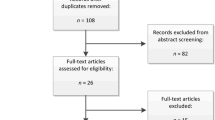Abstract
Performance measures (such as reaction time, perceptual constancy, or word associations) can conceivably contribute to a better understanding of drug action than can behavior ratings. The reason is that they offer a greater opportunity to define and delineate behavior than do behavior ratings. In spite of a plethora of measures which are presumed to be aspects of schizophrenic deficit, less is known about drug effects on such performance measures than on sympton and behavior ratings.
Difficulties with measuring performance deficit in schizophrenia arise when one wishes to separate the effects of practice, test difficulty, motivation to perform, and ability to follow test instructions from the performance function being measured. Few tests have survived or undergone replication studies. Perhaps the single outstanding exception is reaction time. Some tests show that relatively few of the patients have pathological scores. Rarely are the standard psychometric characteristics of these tests reported.
The questions before this study group were: (a) What is our ability at the present time to specify some performance deficit measures in schizophrenia; and (b) considering the small number of performance measures that can be included in any single study, what are the research strategies that should be adopted?
Similar content being viewed by others
Author information
Authors and Affiliations
Rights and permissions
About this article
Cite this article
Goldberg, S.C. Advantages and problems in the use of performance tests to study schizophrenic deficit. Psychopharmacologia 24, 1–5 (1972). https://doi.org/10.1007/BF00402902
Issue Date:
DOI: https://doi.org/10.1007/BF00402902




